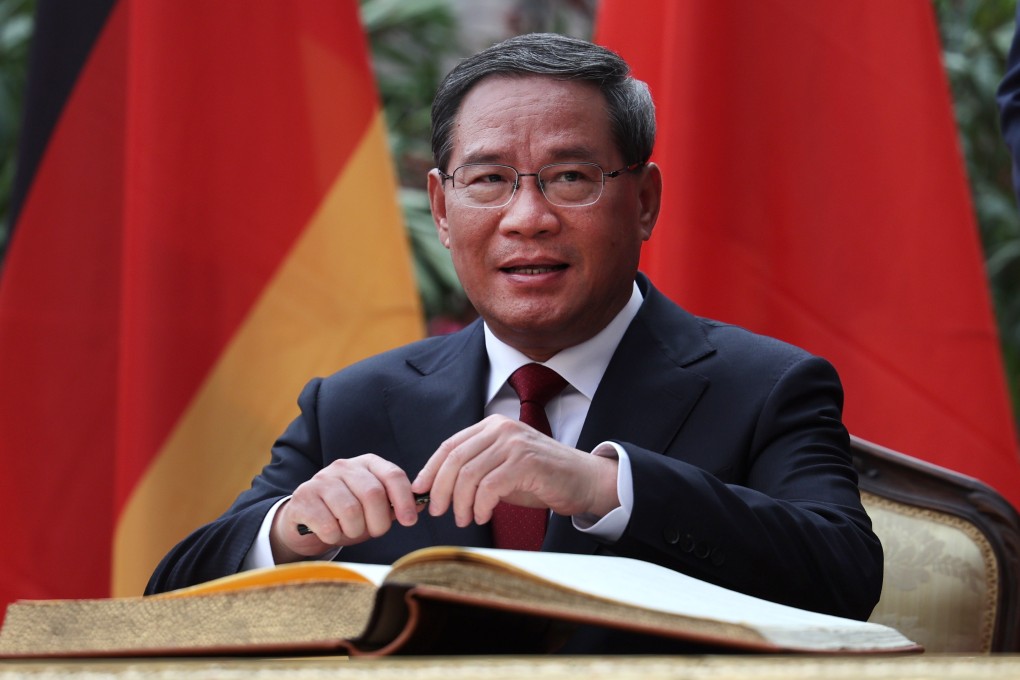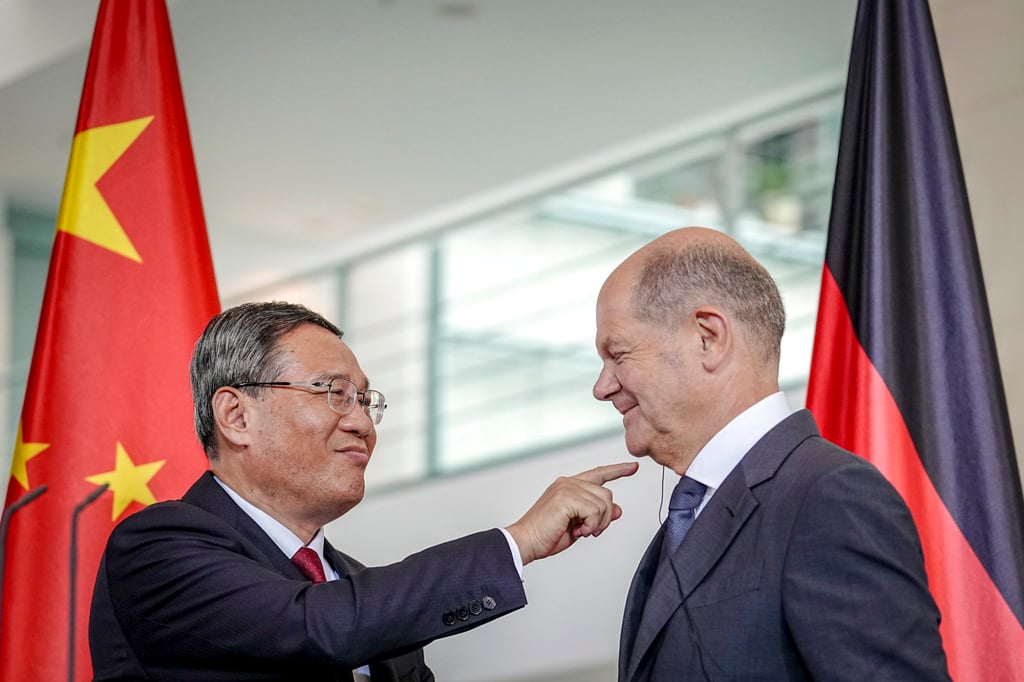Editorial | More independent China policy in best interests of Europe
- Visit by Premier Li Qiang to Germany and France has helped reboot ties at a time when both countries have pushed back against the hardline US approach

The different strategies employed by China towards its relationships with the United States and Europe were on show during Premier Li Qiang’s week-long visit to Germany and France, which included wide engagement with political and business leaders. It overlapped with American Secretary of State Antony Blinken’s two-day visit to Beijing, which was confined to formal, plain-speaking talks with President Xi Jinping and top foreign affairs officials amid a strained bilateral relationship.
Li met a warm reception in Berlin and Paris, with the messaging focused on cooperation between the two sides. Apparent rapport with German Chancellor Olaf Scholz is a reminder that personal relationships can be important to building bilateral and multilateral ties at this level. That is not to say the European Union’s “de-risking” strategy towards China is no longer a concern; serious roadblocks in the economic relationship remain. But Li’s trip to the top two EU economies has helped reboot trade ties with the bloc.
Europe finds itself in the middle of the rivalry between the US and China. France and Germany in particular have difficulties in going all the way with the US in its hardline policy. So they have been quietly pushing back and emphasising a need to be more independent. It is understandable that Europe wants more control over sensitive economic areas. But it also realises China represents great growth opportunities for its economy and there are so many areas in which the two sides can cooperate.
Granted there will be competitive strains. But cutting China out of the loop basically means Europe will become more exposed to the relationship with the US and risk losing a very big and growing market. So overall the message from Li’s first trip overseas since becoming premier is positive.
That should be a universally welcome outcome. The global economy remains in trouble post-Covid and the Ukraine war shows no sign of ending soon, so Europe and China have many reasons to try to work together.

Hopefully a less politicised China-Europe partnership will give Washington more reason to reflect on whether it should be pursuing such a hardline China policy. One of the reasons Washington may have dialled back on the China front recently may have been concerns expressed quietly behind the scenes in some quarters in Berlin and Paris about reconciling a hard line with the need for an environment that fosters economic recovery.
